He's put together a wide range of his favorite DIY props and gems of knowledge from his long career as an educator and master facilitator. Here are some of the chapters:
- Designing a Teambuilding Program from the Ground Up
- Icebreakers, Energizers, and Warm-Up Activities
- Team Challenges
- Puzzles and Games
- Escape Rooms, Scavenger Hunts, and Other Themed Activities
- Debriefing, Reviewing, and Closing Activities
- The Five-Gallon Bucket Teambuilding Kit (my favorite)
Here's a short list of the kinds of materials you'll need:
- Index Cards
- Raccoon Circles (webbing)
- PVC pipes & fittings
- Strings & Ropes
- Playing Cards
- Tarps
- Tennis Balls
Jim gave me permission to share this 'Linguistic Challenge' with you – one I have yet to try. The goal of this challenge "is for a team to place various word cards in the proper sequence to correctly reproduce a familiar quotation." Jim notes he likes to use the site QuotationsPage.com which allows you to search the site using keywords like teamwork, leadership, communication, trust, etc. I've used Quotes and Phrases for a long time to inspire creative thought and open up memorable conversations.
What I like about this one is its simplicity – "place the word cards in the proper sequence" and its complexity – team collaboration, exploration, and consensus as they try different ways of linking the cards/words together.
Make It: Simply find a themed quote related to a group process or outcome and break it down into one-, two- or three-word chunks. Write each chunk on a large index card and you're ready to play.
I will be using one quote for groups of 3 or 4 participants for more engagement (so I'll make multiple copies of each quote), and provide a time budget of about 10 minutes to work out one or two quotes (I like backups in case groups have time remaining in their budget). After time expires, we'll dive into the meaning of the quote and how it can relate to a current experience or everyday life. NOTE: I'll be looking for longer quotes for this activity (but not too long). The one I made for us (below) is 14 cards long – seems like a good start. (Jim's example in the book is also 14 cards – must be a good number then!!) Here's the quote in the download:
Here you go:
| quotesinorder_cain_cavertquote.pdf |
BIG Thanks to Jim! THANKS JIM.
Have FUN out there my friend!
Chris Cavert, Ed.D.

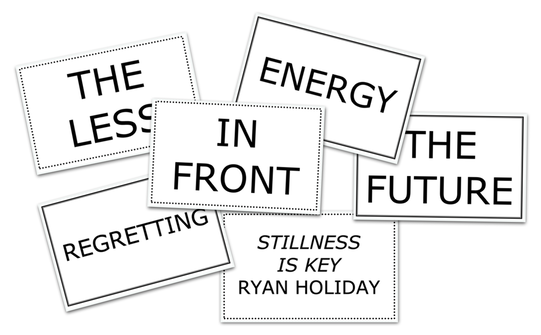
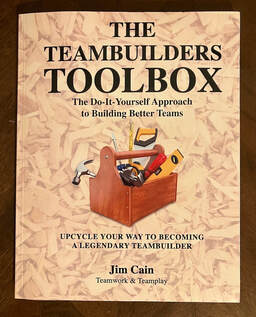
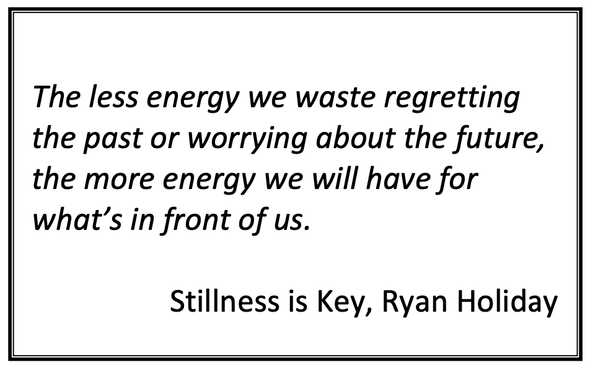
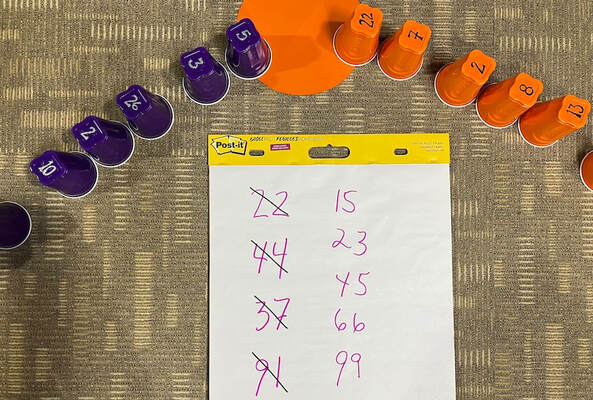
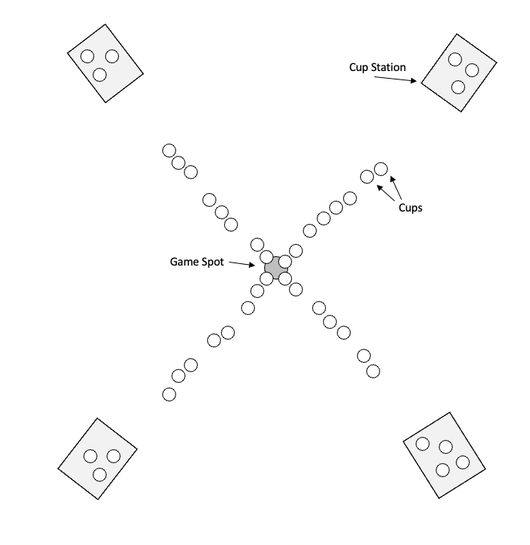
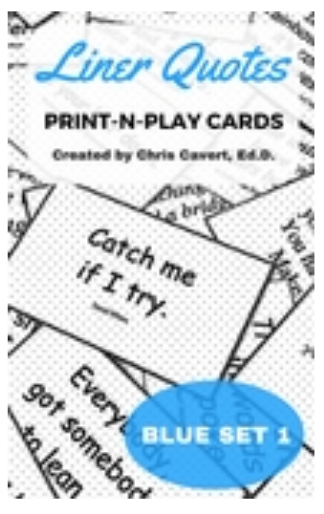
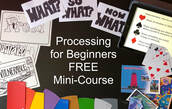
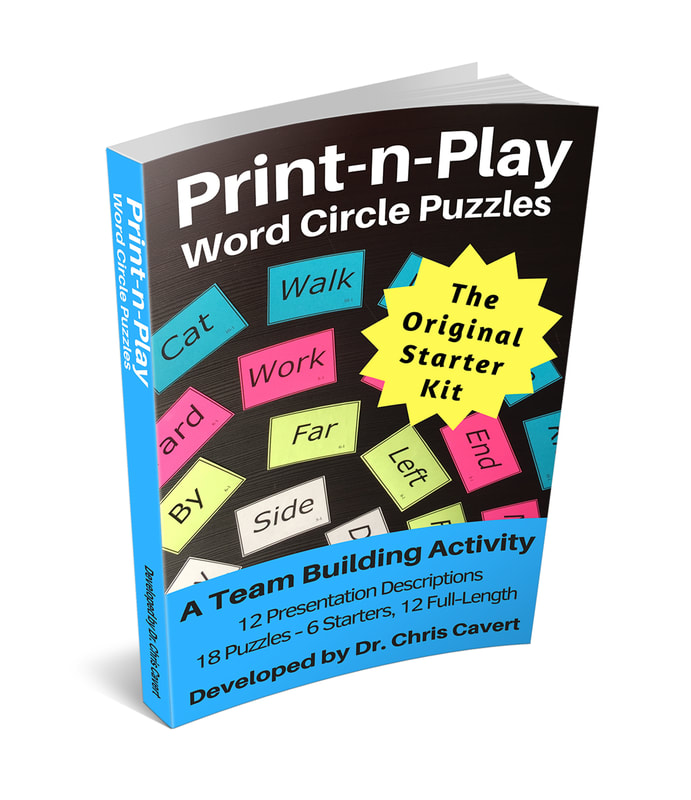
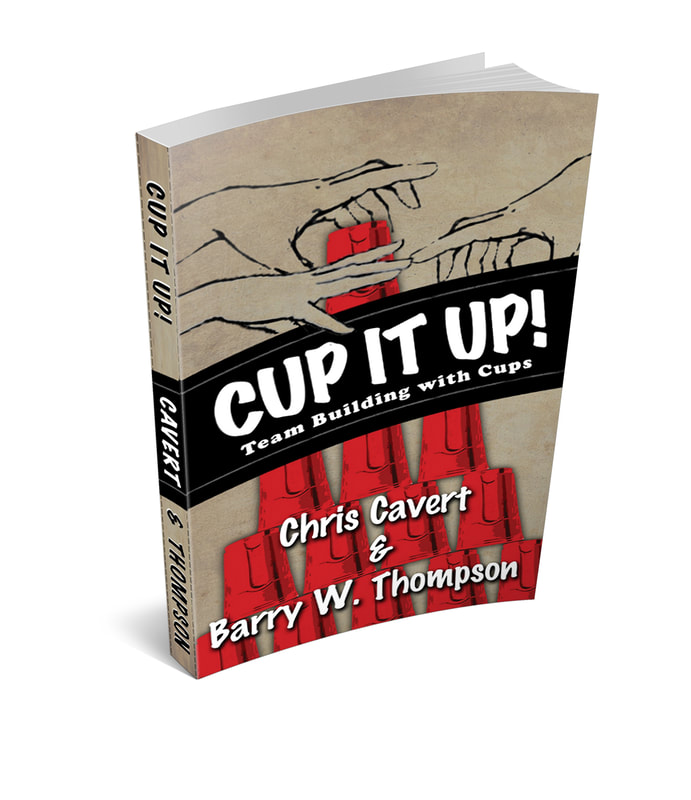
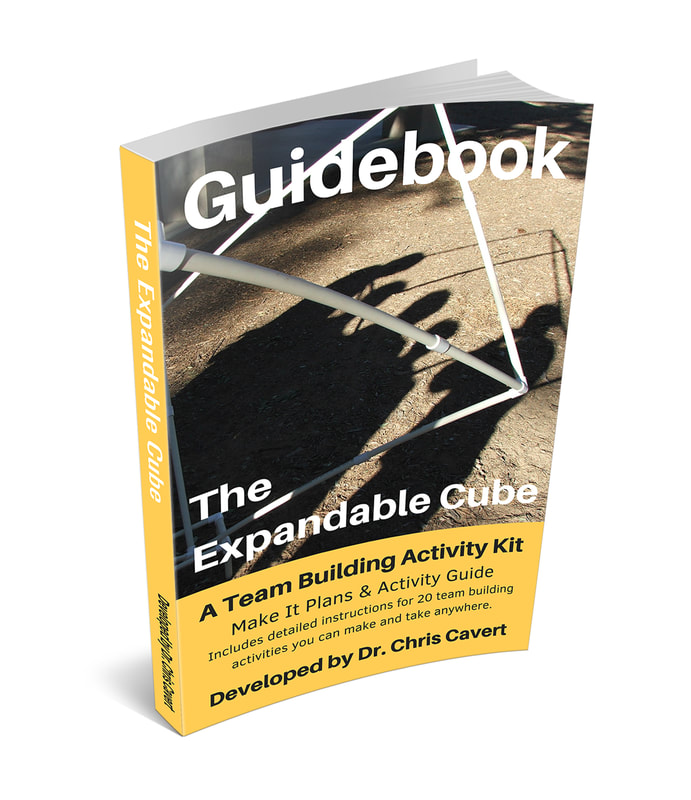
 RSS Feed
RSS Feed